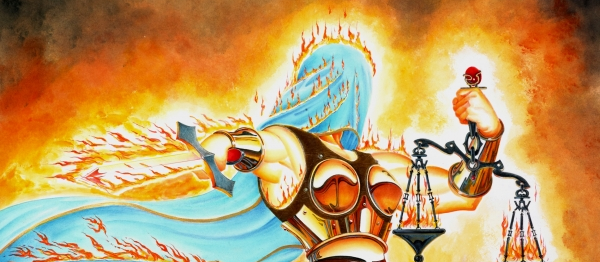
Originally posted on a now-defunct blog. Reposting because the broader philosophical conversation remains relevant.
Capital punishment is an issue that I never felt I understood enough to take a stance. My previously held beliefs were that in a small number of cases, the death penalty may be an appropriate way to appease emotional wounds that plague victim’s families. I am beginning to realize that I was wrong. The death penalty is a derelict practice that has continually made unjust, irreversible verdicts.
The state of Oklahoma was set to execute Richard Glossip on September 30th for the 1997 murder of Barry Van Treese. Three and a half hours before his scheduled time to receive a lethal injection, Richard Glossip received a two-week reprieve from an Oklahoma appeals court.
I am writing this article for two reasons. First, it is to bring attention to the case of Richard Glossip, a man who is being put to death over a crime with no physical evidence connecting him. A case I would not be aware of if not for the public outcry occurring on blogs and social media across the Internet. And secondly, I am writing to present why I had a shift in opinion on my views of capital punishment.
Unfortunately, Richard Glossip is not the first (allegedly) innocent person to face the death penalty. As a New York Times article on this case states, “Supporters like to say it (the death penalty) is reserved for the “worst of the worst,” but that is demonstrably untrue.”
The United States cannot have the death penalty because too often, the person sentenced to death is innocent. A 2014 study conducted by the National Academy of Sciences found that at least 4% of people sentenced to death are actually innocent.
Richard Glossip is being convicted on the testimony of Justin Sneed, the true guilty person. Like many in Richard’s situation, bad lawyering resulted in a successful death penalty sentence. Mr. Glossip’s first lawyer failed to introduce a videotape showing Mr. Sneed confessing his guilt during police interrogation.
This case highlights the arbitrary nature of capital punishment in our society. Why are we so quick to kill in the name of justice? How can we call ourselves an ‘equal and just’ society when we put to death innocent people who do not have the socioeconomic resources to adequately defend themselves? I believe that we cannot. Capital punishment in America is deeply flawed and inherently unjust.
The case of Richard Glossip is more than just a discussion of exoneration. Mr. Glossip’s case is a reminder that the death penalty - in addition to being immoral, ineffective, and irreversible - will continue to take innocent lives as long as it exists.